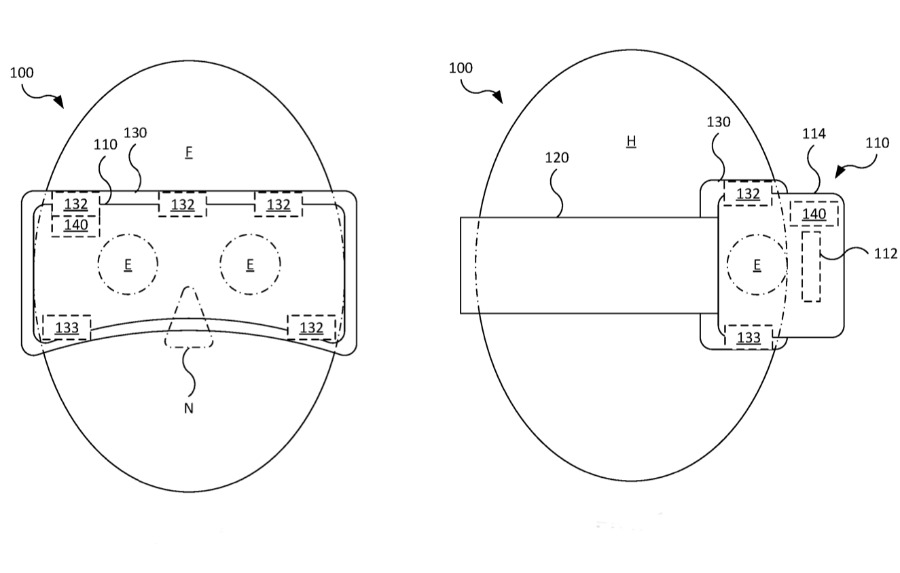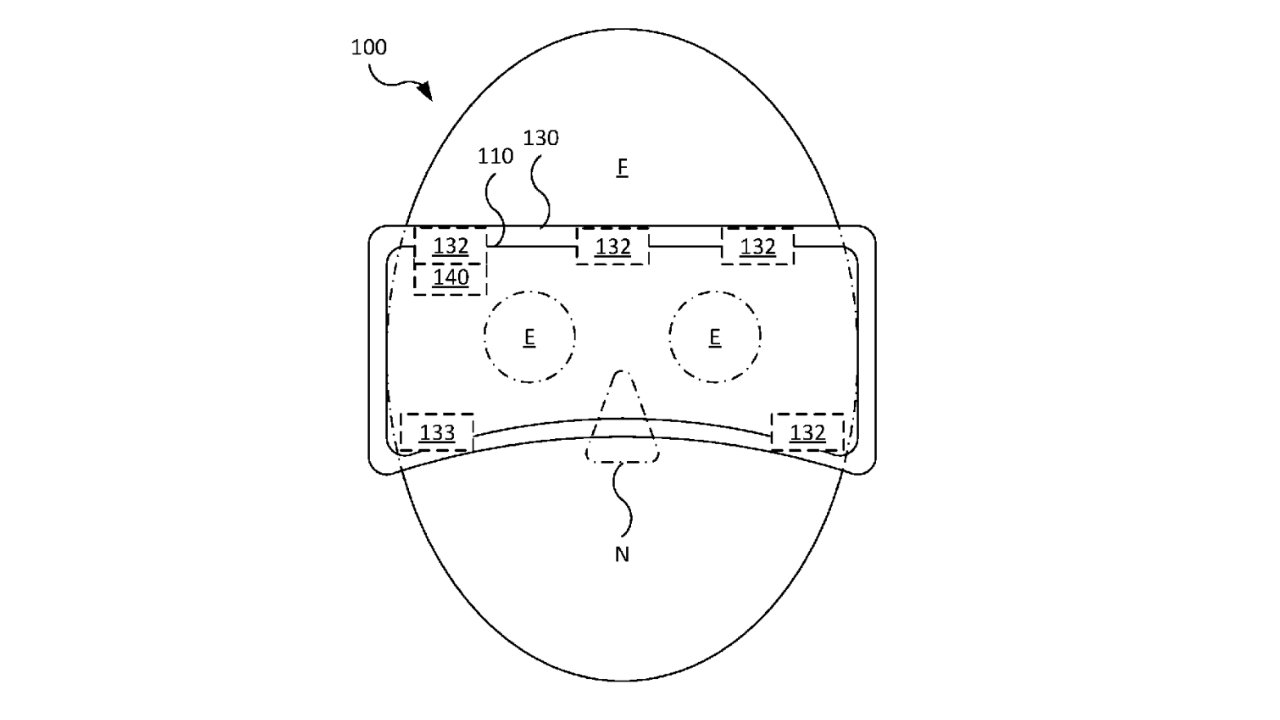Alongside presenting information to the user, a future Apple Vision Pro may scan user health metrics like temperature or heart rate, and alter what is being displayed based on what it can sense.
Apple has filed many previous patents regarding head-mounted displays, going back at least eight years, and often with Vision Pro details hidden in plain sight. Naturally, they are all written in serious, even somber patent-speak, but the latest patent to be granted is for what could actually create the possibility for Peril-Sensitive Sunglasses.
As imagined by Douglas Adams in The Hitch-Hiker's Guide to the Galaxy, these are spectacles that can register when you are alarmed by something you see. And will immediately turn completely black so that you can't see it any more.
There is not one single mention of this in "Head-Mounted Display With Facial Interface For Sensing Physiological Conditions," the newly-granted patent. Yet that it has got to have occurred to the three listed inventors, because the entire proposal is about first registering a wearer's physiological state, and then acting on that information by changing what's shown on the display.
In more than 10,000 words, the patent application is long on precise details about measuring this physiological state, but quite short on exactly what that means. It's then even shorter on suggested uses for the information it gathers.
"A head-mounted display includes a display unit and a facial interface," it begins, before briefly explaining that the display unit presents graphical information to the wearer of Vision Pro or other similar device.
"The facial interface is removably coupleable to the display unit and engages a facial engagement region of a face of the user whereby the display unit is supported on the face of the user," it continues. "The facial interface includes a physiological sensor for sensing a physiological condition of the user in the facial engagement region."
In other words, while you're looking at whatever the Vision Pro is showing, the headset cameras will be looking at you. It's already known that Vision Pro will use gaze tracking to work its "gaze and pinch" gesture, but it could also be gauging your reactions.
There are a lot of different possible ways your body can convey your condition, and they may be too much for one headset to usefully measure and draw conclusions from. So the application acknowledges that some of this may be detected by a second connected device, meaning an iPhone.
"The one or more physiological sensors may be configured to sense physiological conditions in the facial engagement region," it continues, "which may include force, temperature, moisture, displacement, capacitance, brain activity (e.g., EEG as mentioned above), muscle activity (e.g., via force sensors and/or electromyography (EMG)), and/or heart rate."
 Detail from the patent showing a possible arrangement of sensors on a head-mounted device such as "Apple Glass"
Detail from the patent showing a possible arrangement of sensors on a head-mounted device such as "Apple Glass"Apple is at pains to be clear it doesn't mean all of these things will be measured, but it's at even more pains to say they could be and they want the patent. Beyond technical and legal wording, though, there are references to what this system might actually be useful for.
"[It] may be used in various different manners," it says, "for example, for physiological identification, assessing user fit, assessing and/or guiding placement, varying graphical content, and simply outputting physiological information for other purposes, such as individual health monitoring, multi-person health studies, or yet-to-be determined uses."
So beyond just health tracking, the headset could identify the wearer. At the least exciting range of uses, this could also be how Vision Pro tells you that you've not put them on straight.
Somewhere in between these two uses, there is the possibility that such a system could fit into Apple's many health-tracking projects. "Varying geographical content," though, sounds less related to your stress levels and more to what country you happen to be standing in.
Although, conceivably if you have a dangerously elevated heart rate, this could be how the glasses show you directions to the nearest hospital. Or if you're actually standing in a desert, they could show you soothing images of cooler climates. But it's really Peril-Sensitive Vision Pro in all but name.
The three credited inventors on this Apple patent include Daniel M. Strongwater, whose previous work includes designs for earbuds that fit sufficiently well to allow reliable fitness tracking.
 William Gallagher
William Gallagher




-xl-m.jpg)


-m.jpg)






 Wesley Hilliard
Wesley Hilliard
 Christine McKee
Christine McKee
 Amber Neely
Amber Neely

 Malcolm Owen
Malcolm Owen

 Mike Wuerthele
Mike Wuerthele









7 Comments
This will provide valuable feedback on how users enjoy and react to Apple TV+ shows, ads, and really everything.
The mockup is as absurd as the name. I don't know how well these Apple glasses will work, but I'll bet they'll look awesome.
It might be more valuable if Apple could find a way to measure a user's eyestrain, disorientation, vertigo, detachment from reality, and proximity to danger when wearing them while walking, bicycling and driving. And turn them off. And yes, people WILL soon be wearing them outside, while cycling and driving. You can't fix stupid, and there is plenty of stupid out there. Every single day, I see people with cars 1-2 years old, with their eyes down in their laps, looking at their phone screens. In cars that have CarPlay and Android Auto, which apparently they don't know how to use!